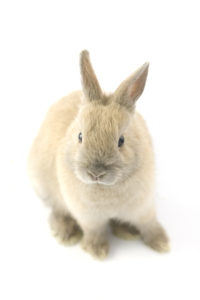My earliest memories of writing don’t involve a crayon or a pencil or a stick dragged through dirt. In fact they don’t involve writing at all, but listening. I remember how it felt to pause, tilt my head and listen as poems and stories jostled and skipped and eventually lined up in orderly fashion inside my brain. The process was at once silent and auditory, and I did it completely alone.
This method served me pretty well even once pencils and keyboards entered the picture. I kept it up all the way through school and into my first few copywriting jobs. From term papers to catalog copy, I puzzled every assignment through from start to finish before ever setting fingers to keys. And once I did lay down the language, I almost never revised.
Like most people who end up in my profession, I had a natural knack for “hearing” a sweet turn of phrase and promptly popping it into place. Solutions came quickly and easily, and efficiency and independence became my points of pride. Hand over your jumbled heap of ideas and I’ll straighten it up for you lickety-split, no further input needed.
If you’re picking up an irritating note of smugness, you’re right. There’s a thrilling sense of power and control that comes with wielding the language in skillful solitude. Particularly when working with non-writers. We are often hired, after all, for our technical ability to do what those who hire us can’t; to make the words line up and behave. To make other people’s ideas sound good.
That started to change one lucky day when I found myself working for someone who does what I do, only way better. For my new manager and mentor, simply “sounding good” was not enough to qualify as great marketing copy. She challenged the creative rationale of every choice, insisting on a clear and powerful “why” behind the words. She pushed me to think more deeply about strategy, visual context, audience and brand voice – even when it made my job a lot harder.
These ideas weren’t new to me, but with her influence I heard them in a new way. I was affected as much by her delivery as by the substance of our conversations. Rather than default to standard, dismissible creative catchphrases like “on-brand” or “feels right,” my manager took her time and spoke with care, illuminating every point with the sharp vocabulary and skillful syntax of a person who genuinely believes that words have the power to make or break a business.
In her coaching I heard subtleties I’d always relegated to the squishy realm of “instinct” reframed and elevated in the language of creative strategy, consumer insight and business acumen. I heard a level of respect for the words and, by extension, the writer, that I hadn’t encountered before. My work was being judged more critically than ever in my career, but I found myself standing a bit taller every time I left her office.
Over time I came to realize that the voice inside my head, however well tuned, had gotten kind of boring. As my focus shifted outward, fresh copywriting inspiration started popping up everywhere. I found it in the novel by my bedside, in the songs on the radio, in the halftime ads during Sunday football. It was there in the humor and talent of my colleagues, whom I was finally learning to appreciate as the richest creative resource of all.
I got more curious, and my work got slower and messier. I drafted and redrafted and experimented and failed and tried again, and that was okay. In fact it was wonderful. Because I was learning to do more than make other people’s ideas sound good. I was, bit by bit, creating ideas of my own.
Besides writing, my other love is singing — especially in a chorus. As my experience as a writer expanded and evolved, I found myself reminded of a long-ago choir director who urged us to “sing with our ears wide open.” Only by letting go of the sound of our our own voices could each of us be fully affected by, and in turn contribute our best to, the more powerful creative whole. I’ve learned that copywriting, though in many ways a solitary pursuit, is really no different. Every project still begins with listening, but now I work hard to let go of the familiar and comfortable, and tune in instead to the world of possibility that lies beyond my own first instincts. It’s so much more interesting out there.


